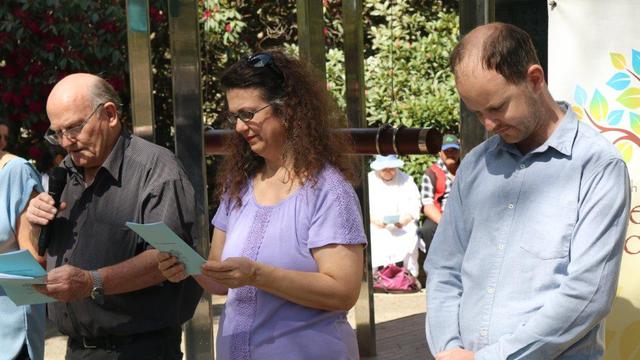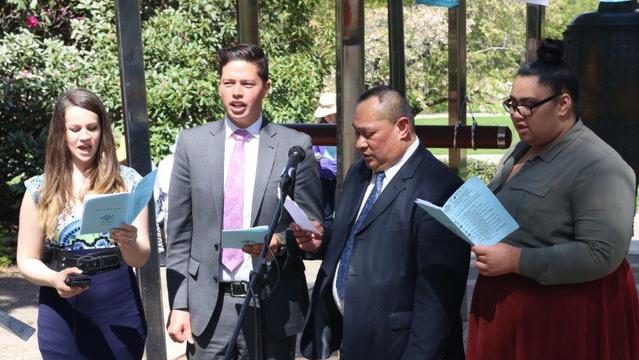Members of several different faith groups came together last weekend in Christchurch, New Zealand to discuss ways to work together to encourage peace in our homes, communities and throughout the world.
While prayers were offered by various faith representatives according to the beliefs and traditions of each person, the common theme of the gathering was that most of God’s children want peace in their own lives, in their families and in all nations.

Latter-day Saint representatives participated in the event and also took part in a similar event in Dunedin earlier this month.
Church leader, Stephen Smith, told those in attendance that his children strengthened his desire for peace.
“Peace,” he said, “begins at home, by teaching our children to be peacemakers. These seemingly small acts can influence a family, a neighbourhood, a community, a society and eventually the world.”
The Church of Jesus Christ of Latter-day Saints teaches that Jesus Christ is the “Prince of Peace.”
In 2013 Latter-day Saint Apostle, Elder Quentin L. Cook, said, “I have been impressed with the doctrinal difference between universal or world peace and personal peace. At the birth of the Savior, a multitude of the heavenly host praised God and proclaimed, ‘Glory to God in the highest, and on earth peace, good will toward men.’ However, it has been poignantly noted that even in this eternally significant period following the birth of the Son of God, Herod the king carried out the slaughter of innocent infants in Bethlehem.”

Elder Cook continued: “Agency is essential to the plan of happiness. It allows for the love, sacrifice, personal growth, and experience necessary for our eternal progression. This agency also allows for all the pain and suffering we experience in mortality, even when caused by things we do not understand and the devastating evil choices of others. The very War in Heaven was waged over our moral agency and is essential to understanding the Savior’s earthly ministry.
“As recited in the 10th chapter of Matthew, the Savior instructed the Twelve and acknowledged that His mission would not achieve universal peace in this mortal life. The Apostles were told to leave peace upon the worthy houses they visited but warned that they would be ‘in the midst of wolves … [and] hated of all men for my name’s sake: but he that endureth to the end shall be saved.’ A significant pronouncement is made in verse 34: ‘Think not that I am come to send peace on earth.’ It is clear that universal peace did not exist on the earth during Christ’s mortal ministry, and it does not now.
He added, “The Savior is the source of true peace. Even with the trials of life, because of the Savior’s Atonement and His grace, righteous living will be rewarded with personal peace. In the intimate setting of the Passover chamber, the Savior promised His Apostles that they would be blessed with the ‘Comforter, which is the Holy Ghost’ and then uttered these important words: ‘Peace I leave with you, my peace I give unto you: not as the world giveth, give I unto you.’ Then just before His Intercessory Prayer: ‘These things I have spoken unto you, that in me ye might have peace. In the world ye shall have tribulation: but be of good cheer; I have overcome the world.’”
Read more about Latter-day Saints, interfaith relations and peace.